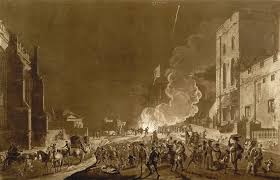
Introduction to Guy Fawkes Day
Guy Fawkes Day, also known as Bonfire Night, is observed annually on November 5th in the United Kingdom. This event holds significant cultural and historical importance as it commemorates the failed Gunpowder Plot of 1605, in which Guy Fawkes and a group of Catholic conspirators attempted to assassinate King James I and blow up the House of Lords. The day serves as a reminder of the impact of political dissent and the importance of governance and civic responsibility.
Historical Context
The Gunpowder Plot was a result of growing tensions between Catholics and Protestants in England, stemming from oppressive laws against Catholics. Guy Fawkes, who was in charge of explosives, was caught guarding the stocks of gunpowder placed under Parliament. Following his capture, Fawkes was tortured and executed, leading Parliament to declare November 5th as a day of thanksgiving for the king’s safety. Since then, the day has evolved into a night of celebration characterized by fireworks, bonfires, and the burning of effigies of Fawkes, symbolizing the thwarted plot.
Modern Celebrations
Today, Guy Fawkes Day is marked by various festivities across the UK. Families gather to enjoy fireworks displays, and bonfires are lit where effigies of Fawkes are burned as part of the traditional celebrations. In cities and towns from London to Manchester, community events are held featuring food stalls, music, and family-friendly activities. Despite its historic origins, Guy Fawkes Day has become a time for social gathering and enjoyment, making it a highlight of the autumn season.
Significance and Reflection
While Guy Fawkes Day primarily serves as a celebration, it also invites reflection on the importance of civil liberties and the right to protest. In light of current global political climates, the themes of dissent and governance resonate with audiences today, making the day relevant beyond its historical context. The familiar phrase, “Remember, remember the fifth of November,” serves as both a reminder of the past and a caution about the future. As Britain marks this day, it also encourages discussions about justice, freedom, and the consequences of political actions.
Conclusion
Guy Fawkes Day is much more than a night of fireworks; it is a testament to the ongoing dialogue about power, governance, and the rights of individuals in society. As the UK continues to celebrate this unique day, it remains vital for citizens to understand its origins and perpetuate its lessons for future generations. Observers around the world may find parallels in their struggles and celebrations, fostering a global appreciation for the values of democracy and the history that shapes it.



